Filter by
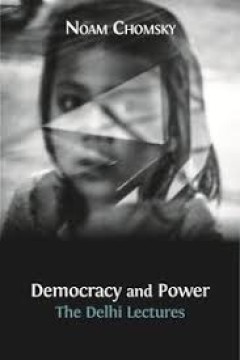
Democracy and power: the Delhi lectures
"Noam Chomsky visited India in 1996 and 2001 and spoke on a wide range of subjects, from democracy and corporate propaganda to the nature of the world order and the role of intellectuals in society. He captivated audiences with his lucid challenge of dominant political analyses, the engaging style of his talks, and his commitment to social equality as well as individual freedom. Chomsky’s ear…
- Edition
- -
- ISBN/ISSN
- 9781783740949
- Collation
- 1 online resource (xviii, 171 pages)
- Series Title
- -
- Call Number
- 327.1 CHO d

Media freedom and right to information in Africa
This e-book is the result of a panel organized in the Fifth European Congress of African Studies (ECAS 5) that took place in Lisbon in June 2013. We thought of organizing this panel on “Press Freedom and Right to Information in Africa” since the question of freedom, especially press freedom, is presently extremely important in all African countries. However, it is not yet well known, both i…
- Edition
- -
- ISBN/ISSN
- 9789897325793
- Collation
- 136 p.; 22 cm.
- Series Title
- -
- Call Number
- 350 BAR m

Education for democratic intercultural citizenship
Education for Democratic Intercultural Citizenship (EDIC) is very relevant in contemporary societies. Seven European universities are working together in developing a curriculum to prepare their students for this important academic, societal and political task. The book present their theories and practices. Readership: Scholars in the field of educational studies, in particular moral education …
- Edition
- -
- ISBN/ISSN
- 9789004411944
- Collation
- viii, 194 p.
- Series Title
- -
- Call Number
- 370.117 EDU e
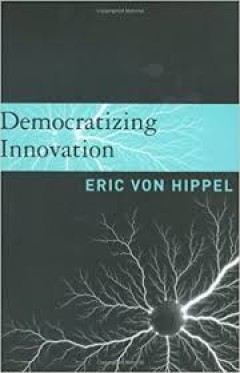
Democratizing innovation
The process of user-centered innovation: how it can benefit both users and manufacturers and how its emergence will bring changes in business models and in public policy.Innovation is rapidly becoming democratized. Users, aided by improvements in computer and communications technology, increasingly can develop their own new products and services. These innovating users—both individuals and fi…
- Edition
- -
- ISBN/ISSN
- 0262002744
- Collation
- x, 204 p. : ill. ; 24 cm.
- Series Title
- -
- Call Number
- 338.064 HIP d
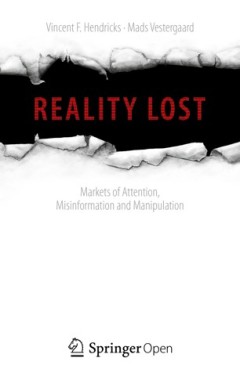
Reality lost : markets of attention, misinformation and manipulation
This open access book looks at how a democracy can devolve into a post-factual state. The media is being flooded by populist narratives, fake news, conspiracy theories and make-believe. Misinformation is turning into a challenge for all of us, whether politicians, journalists, or citizens. In the age of information, attention is a prime asset and may be converted into money, power, and influ…
- Edition
- -
- ISBN/ISSN
- 9783030008130
- Collation
- xxi, 144p. : ill.
- Series Title
- -
- Call Number
- 070.43 HEN r
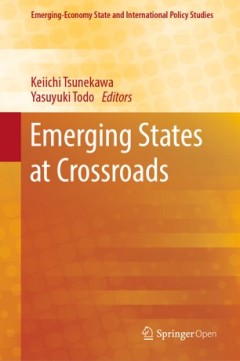
Emerging states at crossroads
This volume analyzes the economic, social, and political challenges that emerging states confront today. Notwithstanding the growing importance of the ‘emerging states’ in global affairs and governance, many problems requiring immediate solutions have emerged at home largely as a consequence of the rapid economic development and associated sociopolitical changes. The middle-income trap is a…
- Edition
- -
- ISBN/ISSN
- 9789811328596
- Collation
- xiii, 293p. : ill.
- Series Title
- -
- Call Number
- 338.95 EME e

Youthquake 2017 : the rise of young cosmopolitans in Britain
This book investigates the reasons behind the 2017 youthquake – which saw the highest rate of youth turnout in a quarter of a century, and an unprecedented gap in youth support for Labour over the Conservative Party – from both a comparative and a theoretical perspective. It compares youth turnout and party allegiance over time and traces changes in youth political participation in the UK s…
- Edition
- -
- ISBN/ISSN
- 9783319974699
- Collation
- xiii, 129p. : ill.
- Series Title
- -
- Call Number
- 323.04208350941 SLO y
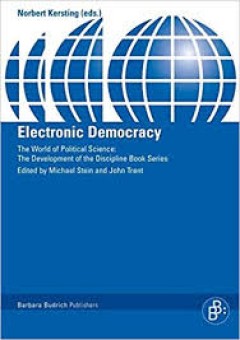
Electronic democracy
The timely book takes stock of the state of the art and future of electronic democracy, exploring the history and potential of e-democracy in global perspective. Analysing the digital divide, the role of the internet as a tool for political mobilisation, internet Voting and Voting Advice Applications, and other phenomena, this volume critically engages with the hope for more transparency and po…
- Edition
- -
- ISBN/ISSN
- 9783847400189
- Collation
- 203 pages ; 21 cm.
- Series Title
- The world of political science : the development of the discipline
- Call Number
- 321.802854678 KER e
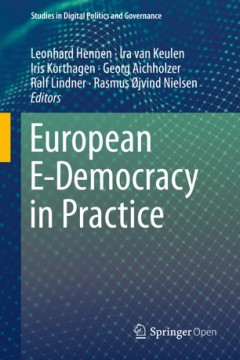
European e-democracy in practice
This open access book explores how digital tools and social media technologies can contribute to better participation and involvement of EU citizens in European politics. By analyzing selected representative e-participation projects at the local, national and European governmental levels, it identifies the preconditions, best practices and shortcomings of e-participation practices in connection…
- Edition
- -
- ISBN/ISSN
- 9783030271848
- Collation
- xi, 359p. : ill.
- Series Title
- -
- Call Number
- 323.042094 EUR e

Islam, politics and change : the Indonesian experience after the fall of Suharto
After violent protests all over the country had forced President Suharto to step down in 1998, Indonesia successfully made the transition from an authoritarian state to a democracy. In this book Indonesian scholars attached to Islamic universities and Dutch researchers investigate what happened since and what the consequences are of the growing influence of orthodoxy and radicalism, which alrea…
- Edition
- -
- ISBN/ISSN
- 9789087282387
- Collation
- 333p. : ill.
- Series Title
- -
- Call Number
- 320.959804 ISL i
 Computer Science, Information & General Works
Computer Science, Information & General Works  Philosophy & Psychology
Philosophy & Psychology  Religion
Religion  Social Sciences
Social Sciences  Language
Language  Pure Science
Pure Science  Applied Sciences
Applied Sciences  Art & Recreation
Art & Recreation  Literature
Literature  History & Geography
History & Geography